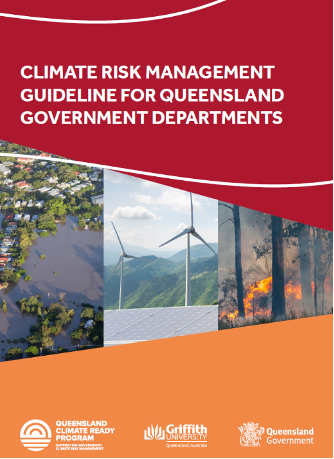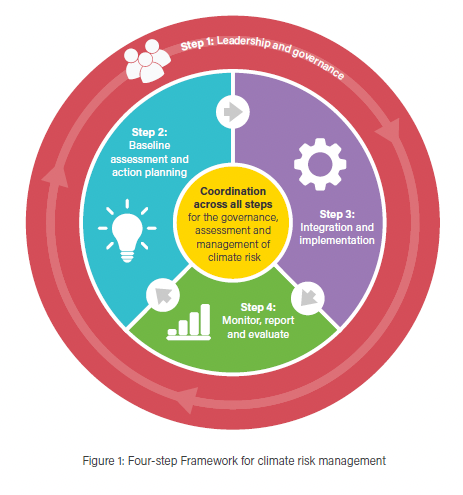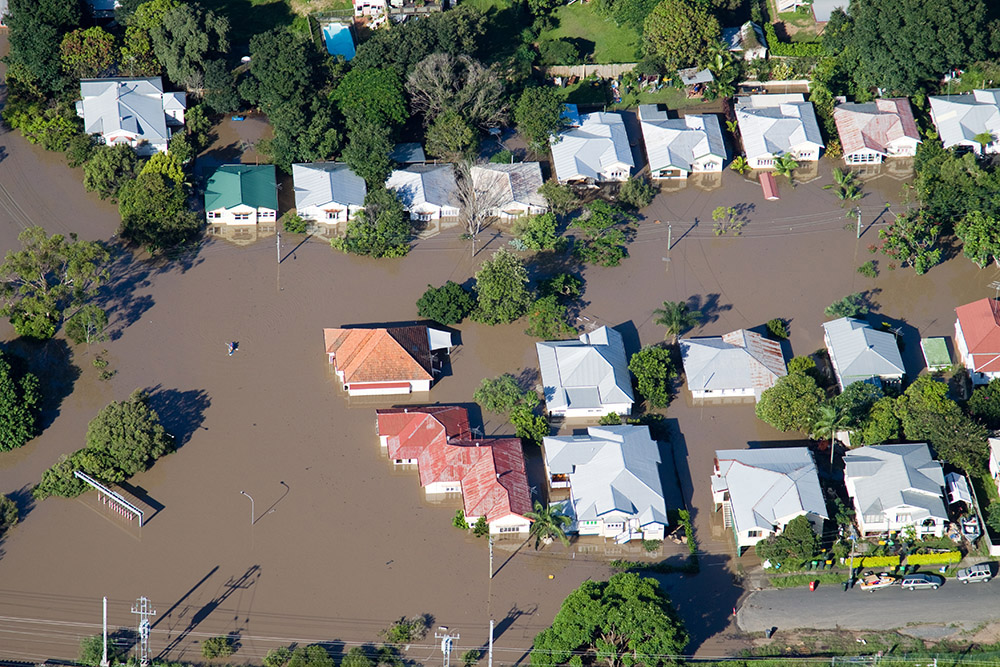Queensland Climate Ready Program wraps up
The Queensland Climate Ready Program, funded by the Queensland Government Department of Environment and Science, has been a partnership between DES and Climate Ready Initiative. Phase I ran from August 2018 to July 2021 and Phase II ran between August 2021 and December 2022. The Program is officially closing at the end of December 2022. The Program worked in partnership to help advance the Queensland Government’s:
- Understanding of climate change risks and capacity to manage these.
- Capability to deal with climate risks in a coordinated and consistent way.
- Progress on priority climate risks based on the best available knowledge, skills, and resources.
Delivery of the key outputs was aided by the co-design approach, which helped to unify objectives, making the program fit for purpose and relatable to departments. Griffith’s role as a critical friend enabled deep engagement in the development of strategic tools, capacity building, and practical implementation guidance.
Phase II deliverables
Phase II of the QCR Program built on Phase I and continued institutional strengthening, capacity and capability building, awareness raising, engagement and relationship building for climate risk management (CRM). The five key deliverables of Phase II were:Supporting two departments to undertake baseline climate risk assessments.
- Co-design of a strategic framework for CRM for one department.
- Development of a CRM Guideline for Queensland Government departments, which includes tools and templates, such as framework steps to help departments do CRM (Figure 1), a baseline assessment template, and templates to assist with capacity analysis. 12 case studies are included in the appendices to illustrate real examples of how departments are doing CRM.
- Delivery of a third CRM Symposium which attracted 102 attendees across 17 departments.
- Phase II Final Report to outline key outcomes and the lessons arising.
Factors that facilitate success
- Tools, templates, and checklists are valuable resources to assist with departmental CRM.
- Surveys, co-designed workshops, tailored materials, and presentations from climate science experts are effective awareness raising and engagement activities that can provide training and initial capacity building.
- Co-design is extremely valuable to attain clarity of scope, and to acknowledge that people are coming from different perspectives.
- It is important to ensure there is enough time set to engage, secure and onboard entities from the time of initial engagement to the time an agreement is signed (it can take 6-7 months).
- The process of establishing a Working Group should allow for 3-6 months depending on the size of the organisation and have cross-divisional representatives to undertake a Baseline Assessment.
- Securing resourcing for a lead coordinator for the Baseline Assessment with the support of the department’s executive team to promote the right operating environment is critical for success.
- Guidelines for departmental CRM are best supported by training, and successful implementation requires updates to be made as policy and science evolve.
Looking ahead
The QCR program funded by the Queensland Government ends on 31 December 2022. From January 2023, The Climate Ready Initiative is available to provide these services to interested government departments.
More information
If you would like more information on the QCR Program and how the Climate Ready Initiative may be able to support you on your climate risk management journey, please contact the Project Manager Cheryl Briars: [email protected].
Top Photo : Flooded homes. Image: Getty Images



“Without the QCR Program the business would not have asked many of the questions now being asked.”


